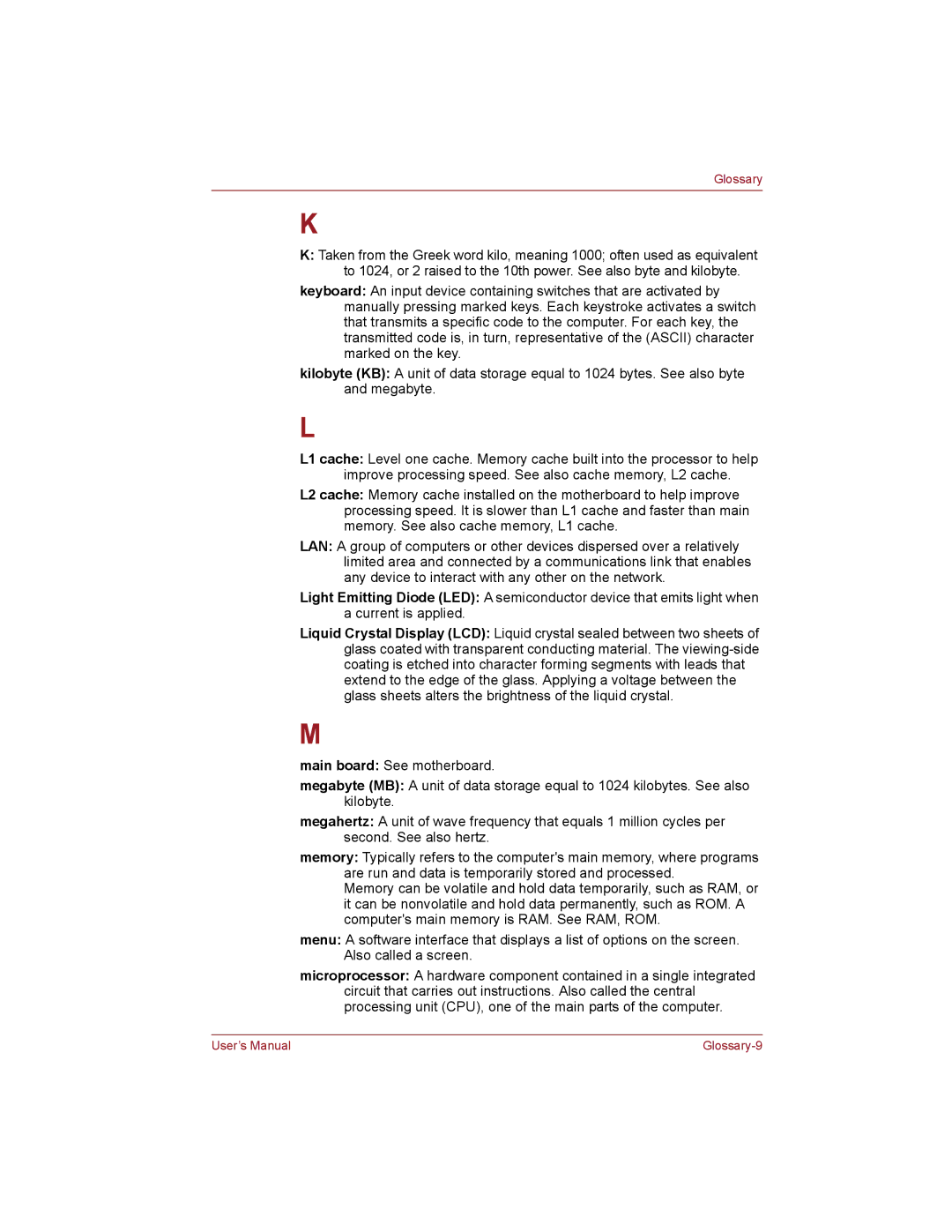
Glossary
K:Taken from the Greek word kilo, meaning 1000; often used as equivalent to 1024, or 2 raised to the 10th power. See also byte and kilobyte.
keyboard: An input device containing switches that are activated by manually pressing marked keys. Each keystroke activates a switch that transmits a specific code to the computer. For each key, the transmitted code is, in turn, representative of the (ASCII) character marked on the key.
kilobyte (KB): A unit of data storage equal to 1024 bytes. See also byte and megabyte.
L1 cache: Level one cache. Memory cache built into the processor to help improve processing speed. See also cache memory, L2 cache.
L2 cache: Memory cache installed on the motherboard to help improve processing speed. It is slower than L1 cache and faster than main memory. See also cache memory, L1 cache.
LAN: A group of computers or other devices dispersed over a relatively limited area and connected by a communications link that enables any device to interact with any other on the network.
Light Emitting Diode (LED): A semiconductor device that emits light when a current is applied.
Liquid Crystal Display (LCD): Liquid crystal sealed between two sheets of glass coated with transparent conducting material. The
main board: See motherboard.
megabyte (MB): A unit of data storage equal to 1024 kilobytes. See also kilobyte.
megahertz: A unit of wave frequency that equals 1 million cycles per second. See also hertz.
memory: Typically refers to the computer's main memory, where programs are run and data is temporarily stored and processed.
Memory can be volatile and hold data temporarily, such as RAM, or it can be nonvolatile and hold data permanently, such as ROM. A computer's main memory is RAM. See RAM, ROM.
menu: A software interface that displays a list of options on the screen. Also called a screen.
microprocessor: A hardware component contained in a single integrated circuit that carries out instructions. Also called the central processing unit (CPU), one of the main parts of the computer.
Users Manual |
|
